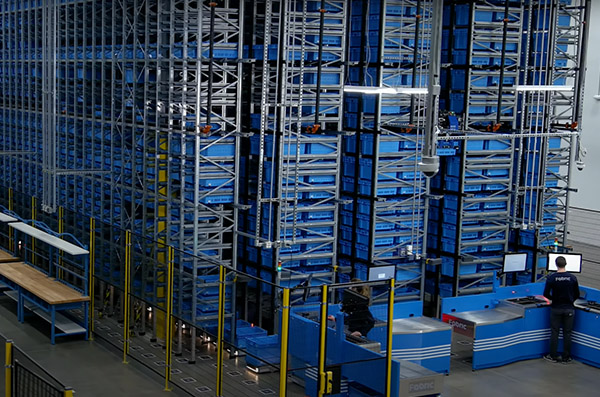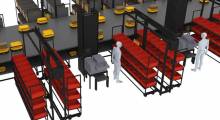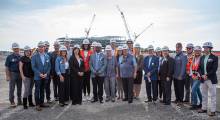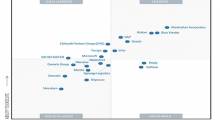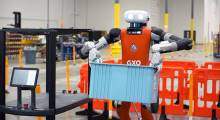A.P. Moller - Maersk and Get Fabric Inc. today announced a new 38,000-sq.-ft. warehouse in Dallas. The facility includes e-commerce fulfillment automation driven by artificial intelligence, said the partners. They added that Fabric's robots and software maximizes productivity while minimizing urban space requirements.
“The growth of e-commerce continues to reshape the retail landscape,” stated Erez Agmoni, global head of innovation for logistics and services at Maersk. “As we look to help our customers streamline their supply chains end to end, we see Fabric’s automated fulfillment solution as one that is highly capable of meeting the demand for efficient warehousing and fulfillment where labor and real estate resources are scarce.”
A.P. Moller - Maersk is a global logistics leader, with more than 100,000 employees and operations in over 130 countries. The Copenhagen, Denmark-based supply chain company said it is aiming to reach net-zero emissions by 2040 across the entire business with new technologies, new vessels, and green fuels.
Maersk builds big B2C center
Maersk said its Dallas facility is designed for high-volume, business-to-consumer (B2C) e-commerce and is capable of managing up to 25,000 SKUs. Fabric said it is the first time that a third party runs one of its micro-fulfillment centers.
Fabric said its high-density, high-throughput, cube-based storage system can take advantage of faciility ceiling heights to effectively maximize the potential of smaller footprints. The Tel Aviv, Israel-based company claimed that its automation is optimized to fulfill orders of single-picked items for same-day or next-day delivery.
This design makes the technology suitable for distributed warehouse networks in urban areas, asserted Fabric. By putting goods closer to population centers, retailers can cut shipping costs and expedite delivery times, it noted.
Final preparations are under way, and Maersk said it expects the site to be fully operational this fall in support of an online B2C retailer.
Fabric relies on experience with retailers
“With our proven track record of operating our state-of-the-art facilities for the past five years, we have honed our capabilities to make each piece of the fulfillment process work together seamlessly to enable retailers to unlock the business value of fulfillment automation,” said Avi (Jack) Jacoby, CEO of Fabric.
“Teaming up with Maersk allows each company to do what it does best, with the ultimate goal of offering retailers unprecedented value and service,” he added.
Founded in 2015, Fabric said it combines hardware and software developed through years of experience operating e-commerce and grocery sites. The Tel Aviv, Israel-based company said it optimizes and orchestrates each aspect of the fulfillment process, from inbound to outbound.
Fabric has raised $375 million from investors including Temasek, Corner Ventures, Union Tech Ventures, Playground, Innovation Endeavors, and Aleph. It has offices in New York and teams throughout the U.S. and the EU.
Article topics
Email Sign Up

